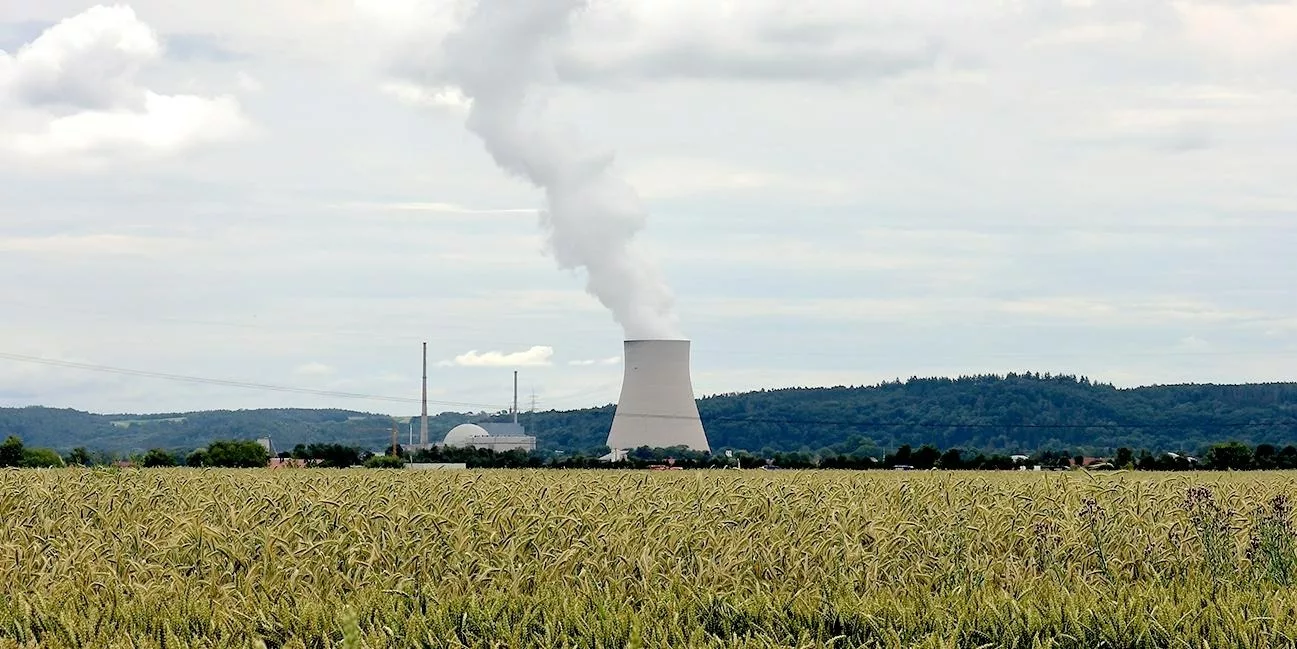
The Future of Energy: How Nuclear Fission and Nuclear Fusion Technology can Meet Growing Demands
Introduction:
In an era of increasing energy demands and pressing environmental concerns, the search for sustainable and efficient energy sources has become more critical than ever. Among the various options available, nuclear energy, specifically nuclear fission and nuclear fusion, has emerged as a potential game-changer. These advanced technologies hold the promise of providing abundant, low-carbon, and reliable energy to meet the growing needs of our world. In this blog, we will delve into the future of energy and explore how nuclear fission and nuclear fusion can revolutionise the way we power our planet.
Nuclear Fission: Utilising the Power of Splitting Atoms
Nuclear fission involves the splitting of atomic nuclei, resulting in the release of a tremendous amount of energy. This energy can be utilised to generate electricity by heating water, producing steam, and driving turbines. Nuclear fission has been employed for decades and currently accounts for a significant portion of global electricity production.
Benefits of Nuclear Fission:
Abundant Energy: Nuclear fission provides a highly concentrated energy source that can generate a substantial amount of electricity, ensuring a stable power supply to meet the increasing energy demands.
Low Carbon Emissions: Nuclear fission emits virtually no greenhouse gases during the electricity generation process, contributing significantly to reducing carbon emissions and mitigating climate change.
Reliability: Nuclear power plants can operate continuously for extended periods, providing a reliable and consistent energy supply that is independent of weather conditions or fluctuations in fuel availability.
Energy Security: Nuclear fission reduces dependency on fossil fuel imports, enhancing energy security for countries that lack significant domestic energy resources.
Challenges of Nuclear Fission:
Radioactive Waste: Nuclear fission produces radioactive waste that requires careful management and long-term storage to ensure safety and prevent environmental contamination. Advancements in waste management techniques are being pursued to address this challenge.
Safety Concerns: Safety remains a paramount concern in nuclear energy production, as demonstrated by historical incidents such as the Chernobyl disaster in 1986 and the Fukushima disaster in 2011.Despite this , it is still one of the Safest methods of generating energy due to the stringent measures employed, regardless of historical incidents.
Nuclear Fusion: Unlocking Limitless Energy Potential
Nuclear fusion is a process that involves combining atomic nuclei, releasing enormous amounts of energy. This is the same process that powers the sun and stars. While nuclear fusion has been a subject of ongoing research for decades, scientists have yet to develop a commercially viable fusion reactor.
The Potential of Nuclear Fusion:
Abundant and Sustainable Energy: Nuclear fusion has the potential to provide an almost limitless supply of energy. By harnessing the power of fusion, we can tap into the same energy source that fuels our sun, offering a sustainable and abundant solution to meet the world’s energy demands.
Minimal Waste and Safety: Unlike nuclear fission, nuclear fusion produces minimal radioactive waste, and the process can be inherently safe due to its self-limiting nature. In the event of any disruption, the fusion reaction stops automatically.
Fuel Availability: The fuels used in nuclear fusion, such as deuterium and tritium, are readily available in seawater and can be extracted in abundance. This ensures a long-term and reliable fuel source for fusion reactors.
Challenges of Nuclear Fusion:
Technological Complexity: Nuclear fusion is an immensely challenging technology to develop and control. Scientists are working tirelessly to achieve and sustain the necessary conditions for fusion reactions while overcoming technical barriers.
High Energy Input: The process of nuclear fusion requires substantial energy input to initiate and maintain the fusion reaction. Achieving a net energy gain, where the energy produced exceeds the energy input, remains a significant challenge.
Commercial Viability: Developing a commercially viable fusion reactor is a complex and costly endeavour. However, significant investments and collaborations worldwide are driving progress in fusion research and bringing us closer to achieving this milestone.
Conclusion:
The future of energy lies in embracing a diverse energy mix that combines renewable sources with advanced technologies. Nuclear fission and nuclear fusion offer immense potential to meet the growing global energy demands while reducing carbon emissions. Nuclear fission provides a reliable and low-carbon energy source, while nuclear fusion holds the key to unlocking virtually limitless and sustainable energy.
As governments, researchers, and private entities invest in nuclear energy research and development, the challenges associated with nuclear fission and nuclear fusion are being addressed, making them more feasible and safe options for the future. By harnessing the power of nuclear energy, we can create a sustainable and resilient energy infrastructure that caters to the world’s growing energy needs while preserving the health of our planet for generations to come. The future of energy is bright, and nuclear fission and nuclear fusion will undoubtedly play a pivotal role in shaping it.
Latest facts :
Japanese fusion company, Kyoto Fusioneering (KF) and the United Kingdom Atomic Energy Authority (UKAEA) have signed a collaboration agreement to develop fusion related technologies.
The collaboration reaffirms the strategic partnership between the United Kingdom and Japan and is based on a mutual commitment to deliver sustainable, commercial fusion energy for generations to come.
The first project will involve the development of a ‘fusion-grade’ silicon carbide composite system (SiC/SiC), suitable for use as a structural material inside a fusion machine and to understand its stability under simulated fusion conditions.
KF is driven by a collective effort to commercialise fusion to deliver a new sustainable energy for the future for humankind.
UKAEA is the UK’s national research organisation responsible for the delivery of fusion energy, which could be transformative for energy security and important in the fight against climate change.
About EGB Engineering
EGB Engineering is a global engineering consulting firm specialising in sustainable energy solutions, power and propulsion systems. We work in the energy, aerospace, and nuclear industries, providing clients with sustainable and renewable engineering products and services.
